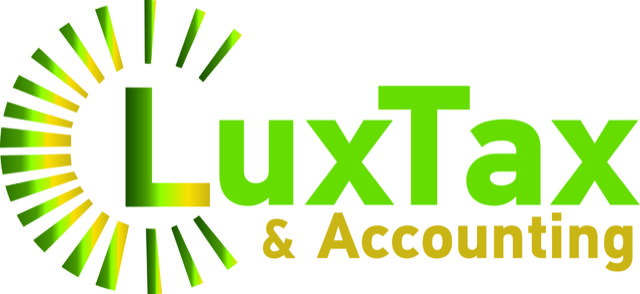
Unlocking the Secrets of Business Licensing in Florida: Everything You Need to Know
As an entrepreneur, licensing your business may be the last thing on your mind. But, leave it to the last minute or forget about it completely, and you can find yourself in a world of trouble. Whether it’s the federal, state, or IRS inspectors who come knocking, your business needs to be properly licensed. This will help you to avoid paying fines and penalties. While it’s best to engage a registered agent to arrange all your licenses and permits, here’s an overview of what you need to know to be compliant.

The ABCs of Business Licencing in Florida
Registering your business in Florida is significantly easier than in some other states. There is no general requirement for a state-wide business license. If your business falls within the definition of being a potentially hazardous one, then it's different. Licensing is required if you have to have a certain level of training. Some of the businesses that fall into this category are:
• Construction – Building Contractors like Electricians and Plumbers as well as Engineers and Architects.
• Financial Services – Accountants, Insurance Brokers, Real Estate Brokers, and Investment Advisors
• Medical – Doctors, Dentists, Nursing Care, and Paramedics
• Security – Firearm Sales, Armed Response Officers, VIP Protection, and Loss Controllers
• Spas and Clinics – Hair Stylists, Barbers, Massage Therapists, and Cosmetologists
If you’re unsure of whether or not your business requires specific licensing or permit, then give us a call and we’ll be happy to help you.
Navigating the Complexities of Business Licensing in Florida
Depending on what type of business you intend to open, the licensing requirements can be quite difficult to get your mind around. The state and local authorities may require you to have multiple licenses for the same occupation.
So, who issues these licenses and permits?
1. In Florida, you can approach the Florida Department of Business and Professional Regulation (DBPR) if your business involves the construction industry, real estate, or alcohol and tobacco.
2. The Florida Department of Agriculture and Consumer Services (DACS) is responsible for issuing permits and licenses to farming and agricultural businesses, any gambling-related establishments, food and food-handling businesses, security operations such as private investigations or other potentially lethal services, as well as oil and gas companies and services.
3. If you intend to open a healthcare facility, then the Florida Department of Health (FDOH) is the agency that will provide licenses and permits for the medical professions as well as dieticians, fitness trainers, and various therapists.
While these state-wide industries are controlled and licensed to operate in Florida, you’ll also need to get permission to open your business from your city or county.
Types of Business Licences
General business licenses issued by local authorities are referred to as a “business tax receipt”. You need one for your business if you supply goods or services to the public, even if you work from home. The receipt has to be displayed where the public can see it. City or county inspectors can come around to your premises and check to see if you have one displayed.
If your business name is different from the name you registered with the Florida Department of State, you may need a Fictitious Business Name (FBN) or Doing Business As (DBA) registration. You will have to obtain a business tax number by applying to the Florida Department of Revenue and once completed, they will issue you with a seller’s permit. All businesses that sell or lease tangible property must have a seller’s permit.
What Do Business Licenses Cost in Florida?
Business tax receipts costs in Florida vary, depending on the location of your business, and maybe a one-time fee of anywhere between $50 and $100. You may also be required to pay an annual fee of the same amount or potentially a bit higher. Annual renewal fees can range between $20 and $200, depending on your type of business and where it is situated. We’ll now look at how you go about obtaining your business licenses and permits in Florida.
Tips for Obtaining a Business License in Florida
Before you go off and apply for your licenses, you need to register your company name and form a business entity or company. Visit our page on how we can help you to form a business entity.
You’ll need to decide on the following:
• Your Business Name
• Business Entity Type - Partnership, Corporation, LLC, etc.
• A Business Address and Phone Number
• Create a Business Plan forecasting anticipated Revenue and Expenses
• A Business Insurance Policy and Certificate of Insurance (COI)
You’ll receive your Employer Identification Number (EIN) after completing the required application. If you register as a sole proprietor, you'll receive an SSN.
You can then make an application to the local and state authorities for your local and state licenses and permits. To make your business licensing process easier and quicker, you should try to avoid the following pitfalls.
Pitfalls to Avoid When Securing Your Business License
Here are a few of the common mistakes that entrepreneurs and new business owners make when applying for licenses and permits.
1. Failing to Perform a Trademark Clearance Search First
If you infringe on someone else’s trademark, it can lead to confusion in the marketplace. But it will, in all likelihood, cost you an enormous amount in legal fees as well as potentially your business as well.
2. Picking the Wrong Trading Entity
The implications for both you and your business can be far-reaching if you make a mistake when choosing the legal vehicle for your business. Not only are there various tax implications to consider, but it can end up costing you money later if you make the wrong decision now.
3. Not Having Legal Agreements with Your Investors or Partners
While it is not a legal requirement, having an ironclad legal agreement with your partners is prudent. It can help avoid unpleasant arguments and legal disagreements at a later date. When investing capital in a business, all parties involved should know their responsibilities.
Spell out how the capital will be handled, what if any salaries are payable, and how profits will be split. These agreements are not there for when everything is going well but rather a legal document on which you can rely when things go badly.
4.Not Applying for Business Licences
If you do not apply for business licenses from the State, County, and City, you run the risk of fines. Your business operations may be suspended or you could face criminal charges. While registering your business may appear to be an enormous task, at TaxTree, we’ve been assisting clients just like you for over 40 years.
Contact us today and we’ll be more than happy to help you apply for your business licenses.
![]()
All License Types
![]()
Expert Advice
![]()
Easy Application Process
![]()
Local Regulations
![]()
Avoid Fines
I was doing my own books for quite some time. I wish I knew these guys existed because I wasn’t even doing a good job. Great Company! Great Team!
Henry A. | Las Vega, NV
Every year I get a reminder about my taxes. I needed somebody like that to push me. Jennifer asked me if I wanted to come in or do it over the phone. I chose to come in. Super Fast and easy this year. Thanks Jennifer.
Cynthia G. | Miami, FL
I love their system online. I have instant access to all my old Tax Returns with the click of a button. The best thing I like is that he explained each part of my tax return in detail. Not like my old accountant. Love it.
Conrad R. | Orlando, FL
Book a Meeting
Pick a Date to Start!!
Thanks for your interest in Ivania Alvarado!
To schedule a demo, please select from the available Dates.
Call us at 305-401-4516 if you have any questions.
See you later!



